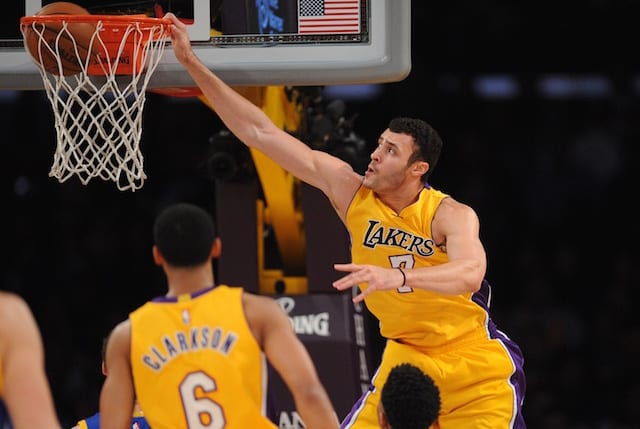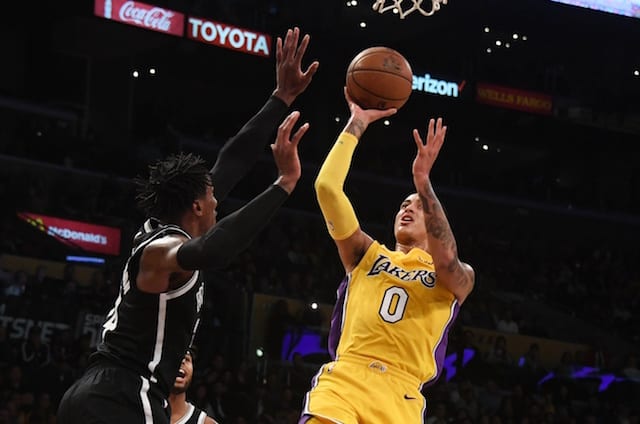The impact of back-to-back games in the NBA has long been discussed among players, coaches, and analysts. These grueling stretches can take a toll on players’ bodies and affect team performance. As the league continues prioritizing player health and game quality, the 2024-25 NBA schedule appears to give the Los Angeles Lakers a slight edge in the Western Conference.
Recent analysis by SBOtop review has shown that the Lakers have historically played fewer back-to-back games than other teams since the league expanded to 30 teams in the 2005-06 season. Over the past 20 years, the Lakers have played 336 back-to-back games, the lowest number in the league. This trend continues in the upcoming 2024-25 season, with the Lakers scheduled for only 13 back-to-back games, tied for the lowest in the Western Conference.
In contrast, several Western Conference rivals face more challenging schedules despite the NBA working to limit the practice. The Phoenix Suns, Denver Nuggets, Los Angeles Clippers, New Orleans Pelicans, Oklahoma City Thunder, and Sacramento Kings are all slated for 16 back-to-back games. This disparity could give the Lakers, a team that will rely heavily on veterans to produce, an advantage in rest and recovery throughout the season.
- Dallas Mavericks – 13 back-to-back games
- Denver Nuggets – 16 games back-to-back
- Golden State Warriors – 14 games back-to-back
- Houston Rockets – 16 back-to-back games
- LA Clippers – 16 back-to-back games
- Los Angeles Lakers – 13 back-to-back games
- Memphis Grizzlies – 13 back-to-back games
- Minnesota Timberwolves – 14 back-to-back games
- New Orleans Pelicans – 16 back-to-back games
- Oklahoma City Thunder – 16 back-to-back games
- Phoenix Suns – 16 back-to-back games
- Portland Trail Blazers – 13 games back-to-back
- Sacramento Kings – 16 back-to-back games
- San Antonio Spurs – 15 back-to-back games
- Utah Jazz – 15 back-to-back games
Back-to-Back Game Impact
The impact of back-to-back games on team performance has been well-documented. Teams often struggle in the second game of a back-to-back, mainly when it involves travel. A study by The Data Jocks found that teams perform about half a point worse in back-to-back games, with the difference becoming more pronounced in recent years. This fatigue factor can lead to decreased shooting efficiency, reduced ball movement, and poorer rebounding performance.
This favorable schedule could benefit the Lakers, who have aging stars like LeBron James (39) and Anthony Davis (31). The team has historically used load management strategies for their key players, and having fewer back-to-backs could allow for more strategic rest without sacrificing as many games.
Enough to Tilt the Odds?
However, it’s important to note that the schedule advantage is just one small factor in the larger picture of an NBA season. Despite this edge, the Lakers still face stiff competition in the Western Conference. Current odds to win the Western Conference place the Lakers as longshots:
Oklahoma City Thunder: +350
Denver Nuggets: +400
Minnesota Timberwolves: +700
Dallas Mavericks: +1000
Phoenix Suns: +1200
Los Angeles Lakers: +1400
While the Lakers’ odds are not among the favorites, the reduced number of back-to-backs could help them outperform expectations. The team’s ability to stay fresh throughout the season could be precious come playoff time, when the intensity and physicality of the game ramp up significantly.
It’s worth noting that the Lakers do face a challenging stretch late in the season, with 12 games in three weeks from weeks 23-26. This condensed schedule could test the team’s depth and resilience just before the playoffs.
The Lakers remain longshots to win the Western Conference and NBA championship, but as history has shown, anything can happen in the playoffs. A well-rested team with experienced stars like James and Davis could be dangerous in a seven-game series, regardless of regular season performance or seeding.








